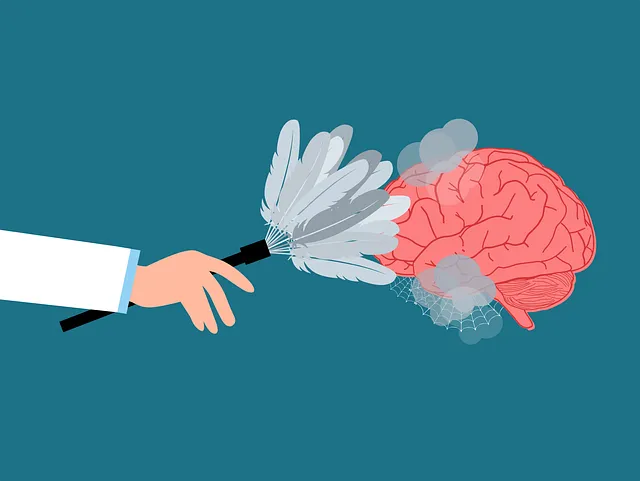Kaiser Permanente in Wheat Ridge provides comprehensive mental wellness programs, leveraging evidence-based practices like Compassion Cultivation Practices (CCP) and crisis intervention guidance. These initiatives aim to reduce stress, foster mindfulness, and enhance therapeutic support. Their Community Outreach Program ensures accessibility, while cultural competency training improves care quality. Evaluating these services involves standardized surveys, qualitative data, and observational assessments, gauging improvements in anxiety, depression, and well-being. Such programs benefit individuals, organizations, and communities by enhancing mental health, productivity, relationships, and overall positivity, as evidenced by Kaiser's successful implementation in Wheat Ridge. (SEO keyword: does Kaiser offer mental health services Wheat Ridge)
Mental wellness programs have become integral to modern healthcare, with organizations like Kaiser offering specialized services in Wheat Ridge. This article delves into a comprehensive evaluation of such programs, starting with an understanding of their significance and how they benefit communities. We examine the effectiveness of Kaiser’s mental health services in Wheat Ridge as a case study. Through exploring common assessment methods and successful implementation strategies, this guide offers insights on evaluating and enhancing mental wellness initiatives for optimal impact.
- Understanding Mental Wellness Programs: A Comprehensive Overview
- Evaluating Kaiser's Mental Health Services in Wheat Ridge
- Common Methods for Assessing Program Effectiveness
- Implementing and Measuring Successful Mental Wellness Initiatives
Understanding Mental Wellness Programs: A Comprehensive Overview

Mental wellness programs are integral components of holistic healthcare, focusing on enhancing and maintaining an individual’s psychological well-being. These programs cater to a wide range of needs, from stress reduction methods and mindfulness practices to more intensive therapeutic interventions. Organizations like Kaiser Permanente, with its Wheat Ridge location, offer comprehensive mental health services that incorporate various evidence-based practices.
At the core of these programs is often a Community Outreach Program Implementation strategy, aiming to make mental wellness support accessible to diverse populations. Moreover, healthcare provider cultural competency training plays a crucial role in ensuring effective care by fostering empathy and understanding among medical professionals. Such initiatives not only improve individual outcomes but also contribute to creating a more inclusive and supportive community environment.
Evaluating Kaiser's Mental Health Services in Wheat Ridge

Kaiser, a prominent healthcare provider in Wheat Ridge, offers a comprehensive suite of mental health services designed to cater to diverse needs. The evaluation of these services is crucial for understanding their effectiveness and ensuring they align with the latest research and best practices. One key method involves assessing the implementation of Compassion Cultivation Practices (CCP), which aim to foster empathy, self-care, and resilience among healthcare providers. By measuring improvements in provider well-being and patient outcomes, researchers can gauge the impact of CCP on burnout prevention strategies for healthcare providers.
Additionally, crisis intervention guidance plays a vital role in Kaiser’s mental health services evaluation. This includes assessing the timeliness and quality of interventions during acute mental health episodes. Regular reviews and feedback mechanisms from both patients and staff are essential to identify areas of improvement. Such evaluations not only enhance patient care but also contribute to developing robust Burnout Prevention Strategies for Healthcare Providers, ensuring a holistic approach to mental wellness in Wheat Ridge.
Common Methods for Assessing Program Effectiveness

When evaluating the effectiveness of a mental wellness program, such as those offered by Kaiser in Wheat Ridge, several common methods are employed to ensure accurate assessment. One widely used approach is the administration of surveys and questionnaires designed to gauge participants’ perceptions of their mental health improvement. These tools often include standardized measures that assess symptoms of anxiety, depression, stress, and overall psychological well-being before and after program participation. By comparing these scores, evaluators can quantify the impact of the intervention on individuals’ mental wellness.
Additionally, interviews and focus groups provide qualitative data, allowing for deeper insights into participants’ experiences. These methods explore individual stories, changes in self-perception, and improvements in areas like mood management and stress management. Observational assessments are another technique, where researchers or facilitators directly observe program participants’ behavior, engagement, and interaction to gauge their inner strength development and overall progress. Such a multifaceted approach ensures a comprehensive understanding of the program’s effectiveness in meeting its mental health service objectives.
Implementing and Measuring Successful Mental Wellness Initiatives

Implementing successful mental wellness initiatives requires a structured approach that goes beyond mere awareness campaigns. Organizations like Kaiser, offering services in Wheat Ridge, have pioneered effective methods through comprehensive programs designed to address various aspects of mental health. These initiatives often include tailored education sessions, promoting positive thinking and resilience, coupled with crisis intervention guidance for immediate support during emergencies.
Measures of success vary but typically involve participant feedback, tracking behavioral changes, and assessing improved overall well-being. By integrating such programs into the workplace or educational settings, organizations can foster healthier environments. This proactive approach not only enhances individual mental wellness but also contributes to increased productivity, improved relationships, and a more positive culture within the community.
Mental wellness program evaluation is a multifaceted process, crucial for understanding the effectiveness of initiatives like those offered by Kaiser in Wheat Ridge. By employing common methods such as pre-post assessments and client feedback, organizations can measure the impact of their programs accurately. As highlighted in this article, successful mental wellness initiatives require comprehensive planning, strategic implementation, and ongoing evaluation to ensure they meet the unique needs of their populations. Evaluating Kaiser’s services in Wheat Ridge demonstrates the importance of such methods in enhancing mental health support and improving overall well-being.






